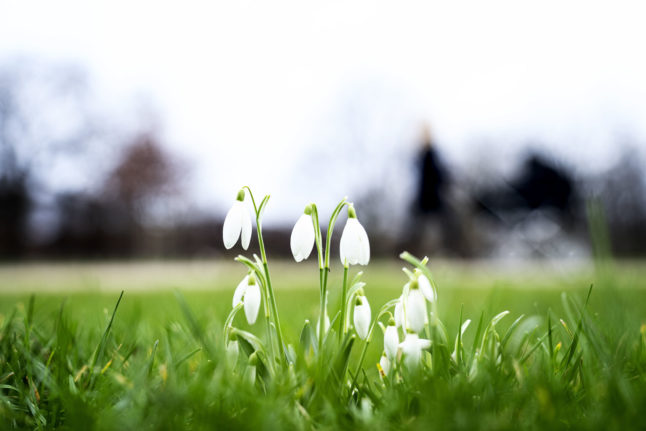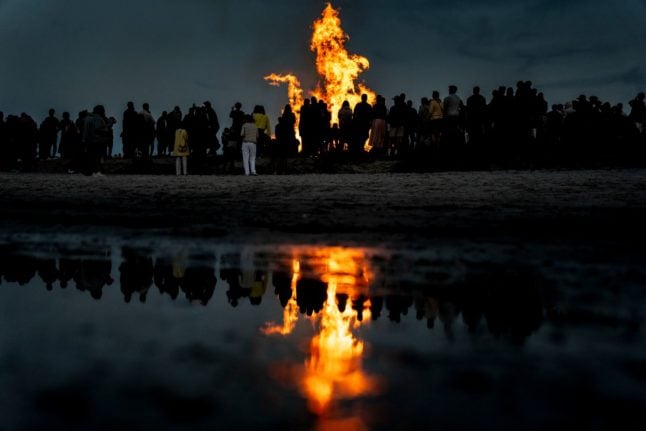Annual tax returns to be released
The release of the årsopgørelse (annual tax return, calculated and displayed on the SKAT website) is possibly the most important event on the Danish tax calendar. All taxpayers in Denmark will be able to access their 2023 returns on the Skat.dk website from March 11th 2024.
Within a set deadline which falls at the beginning of May, taxpayers can edit the tax information on their annual returns, for example if they need to update income or tax exemption information from the relevant tax year (2023 in this case).
Around three out of four taxpayers in Denmark get refunds after the yearly annual return, although others have to pay money back to the tax authority.
While a tax year is ongoing, you can also check how much tax you’ve paid or are due to pay during the course of the year and edit your income and deductions on the preliminary version of the return, the forskudsopgørelse. The preliminary returns for 2024 are already available on the Skat website.
READ ALSO: Årsopgørelse: What you need to know about Denmark’s annual tax return
New limit for cash payments
New rules on the use of cash, first announced late last year by the National Bank, take effect on March 1st.
The change in rules means the limit to cash payments which can be accepted by businesses, currently 20,000 kroner, will be reduced to 15,000 kroner.
Cash is currently used in around 10 percent of payments in stores in Denmark, with 90 percent of these payments being 500 kroner or less.
The reduction to the cash limit is part of a longer-term process in which the 1,000-krone note will be removed from circulation in a measure to fight money laundering.
Ukrainians should apply for child support by end of month
Eligible Ukrainian nationals resident in Denmark under the special “Ukrainian law” for persons who have fled the war in Ukraine should apply for child support payments by March 31st, the Danish Agency for International Recruitment and Integration (SIRI) has advised.
The advice applies if you are married and live alone with your child in Denmark, and your spouse is in Ukraine.
A proposed change to the Ukrainian law, tabled in January, will mean that a person granted residency in Denmark under the law and who is married and lives with their children but without their partner, because the partner is in Ukraine, can be consider a de facto sole provider and receive the relevant social welfare benefit.
Applying for the benefit before the end of March will ensure you can receive it from the date the change takes effect, expected to be April 1st. Further information and the application portal can be found on SIRI’s website.
READ ALSO: Ukrainians in Denmark: Eight out of ten in jobs after fleeing war
Switch to summertime means light evenings are back
The change to GMT+2 or summertime on Sunday, March 31st means an end to dark evenings for another season. Clocks go forward by one hour at 3am on the 31st, meaning one hour less of sleep that weekend to offset the change.
Politicians in Denmark and the EU have in the past discussed scrapping the twice-yearly changing of the clocks for daylight saving, but there have been no recent developments on this front.
Tivoli Gardens opens for its spring/summer season
As the winter days start to fade, Tivoli in Copenhagen reopens. This year’s spring season begins on March 22nd with the park’s Easter week, complete with lambs and flowers, until April 1st. Tivoli will remain open throughout the summer until September 22nd.
Easter holidays
Speaking of Easter, the Easter holidays fall at the end of March this year, meaning the beginning of a run of spring public holidays is just around the corner.
READ ALSO: Påskefrokost: What are the essentials of a Danish Easter lunch?
The Easter period in Denmark includes Maundy Thursday, Good Friday, Easter Sunday, and Easter Monday, which are designated national holidays. Schools are closed from the beginning of the Easter week from the Monday after Palm Sunday. It’s also common for people to use annual leave from work, and some workplaces might close for the Easter week.
Easter dates for 2024 are as follows:
- Palm Sunday: March 24th (Sunday)
- Maundy Thursday: March 28th (Thursday)
- Good Friday: March 29th (Friday)
- Easter: March 31st (Sunday)
- Easter Monday: April 1st (Monday)



 Please whitelist us to continue reading.
Please whitelist us to continue reading.
Member comments